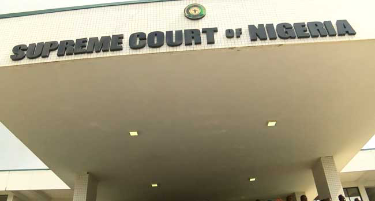In a significant legal development, the Court of Appeal has overturned contempt proceedings that were initiated by the former Governor of Kogi State, Yahaya Bello, against Olanipekun Olukoyede, the Chairman of the Economic and Financial Crimes Commission (EFCC). The ruling, delivered in a unanimous judgment by Justice Joseph Oyewole, nullified the contempt charges and overruled the Respondent’s preliminary objection based on procedural technicalities.
Justice Oyewole noted that the trial judge had erred by not extending the Orders of February 9th in its final judgment on April 17th. He explained that the second issue raised by the former governor regarding the interim order had become a purely academic exercise, thus lacking practical relevance. This crucial point significantly influenced the court’s decision to set aside the proceedings.
Previously, the Appellate Court had granted an ex-parte motion to stay the contempt proceedings filed by ex-governor Bello against the EFCC Chairman. This stay was crucial in halting any immediate enforcement of the trial court’s orders against Olukoyede.
In addition to overturning the contempt proceedings, the Court of Appeal also granted the EFCC’s application to serve legal documents related to the appeal on the former Governor via substituted means. This legal maneuver ensures that the former Governor is adequately notified of ongoing proceedings, even if traditional means of service are impractical.
The court has scheduled the hearing of the motion on notice for May 20th, marking the next step in this ongoing legal saga. This adjournment provides both parties with the necessary time to prepare their cases for the forthcoming hearing.
The origins of this legal conflict trace back to an order from the Kogi State High Court, which had summoned EFCC Chairman Olukoyede to appear in May and explain why he should not be committed to prison for allegedly disobeying court orders. This order stemmed from accusations that the EFCC, under Olukoyede’s leadership, had violated a court order issued on February 9th that restrained the commission from certain actions pending the resolution of a substantive originating motion.

Justice I. A. Jamil of the Kogi State High Court had ruled that the EFCC had indeed acted in violation of the order, which was still valid and in effect at the time the alleged contemptuous acts were committed. This ruling initially led to the contempt proceedings against Olukoyede.
However, seeking relief, the EFCC Chairman appealed the trial court’s ruling and requested a stay of the contempt proceedings. The appellate court’s recent decision to set aside these proceedings represents a significant legal victory for Olukoyede and the EFCC.
This case underscores the complex interplay between legal orders and procedural nuances in Nigeria’s judicial system. It also highlights the judiciary’s role in ensuring that legal processes are followed correctly, and that orders are not enforced in a manner that disregards procedural requirements.
As this case progresses, it will undoubtedly continue to draw attention, given the high-profile nature of the parties involved and the broader implications for the enforcement of court orders and the conduct of public officials. The upcoming hearing on May 20th will be closely watched as both sides present their arguments and the Court of Appeal further deliberates on this contentious issue.




